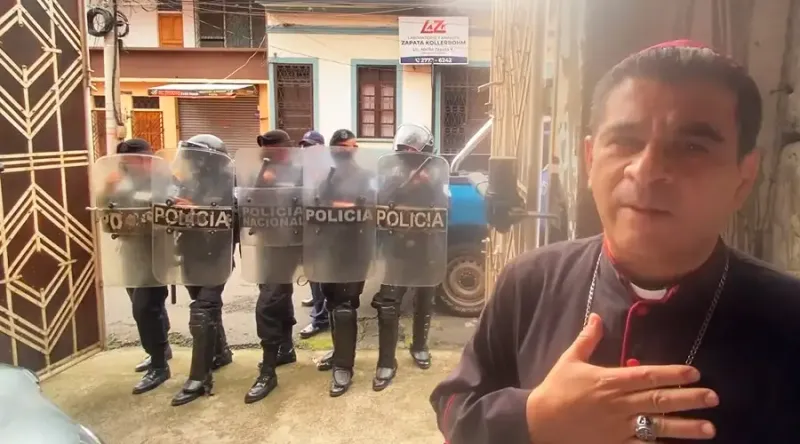
Pope Francis may visit United States in September after UN invitation
 Pope Francis speaks to the United Nations General Assembly in New York City, Sept. 25, 2015. / L’Osservatore Romano.
Pope Francis speaks to the United Nations General Assembly in New York City, Sept. 25, 2015. / L’Osservatore Romano.
Rome Newsroom, Apr 25, 2024 / 07:22 am (CNA).
Pope Francis is reportedly considering returning to the United States in September to speak before the United Nations General Assembly.
The news was initially reported by the French Catholic newspaper La Croix and has not yet been officially confirmed by the Vatican. A source from the Vatican Secretariat of State, meanwhile, told CNA this week that “a formal invitation has arrived from Secretary-General Antonio Guterres, and Pope Francis seems inclined to respond positively.”
If the New York trip occurs, the pope would visit the United Nations during its “Summit of the Future,” which the international body will convene from Sept. 22 to 23.
The possible trip to the United States could change the pope’s already-busy September travel schedule. The Holy See Press Office has announced that Pope Francis will be in Indonesia, Papua New Guinea, Timor Leste, and Singapore from Sept. 2-13.
Pope Francis is also expected at the end of September in Belgium, where he is scheduled to celebrate the 600th anniversary of the University of Louvain, which has been divided into two different linguistic entities since the 1960s. The Holy Father told Mexican television network Televisa last December that he intended to travel to Belgium in 2024.
According to a source familiar with the planning of papal trips, Pope Francis’ trip to Louvain could be postponed to 2025. The postponement of the journey would leave room at the end of September for the visit to the United Nations.
During his planned stay in Belgium, Pope Francis will also celebrate Mass at the national shrine of Koelkenberg. There are also rumors that the pontiff will stop in Luxembourg, one of the small nations favored by the pope for trips to Europe. Luxembourg officials have denied the visit, but the Vatican Secretariat of State has indicated the trip is possible
The September summit’s objective is to strengthen the structures of the United Nations and global “governance” to face more fully the “new and old challenges” of the coming years, the UN has said.
The meeting will lead a “pact for the future” to advance rapidly toward realizing the UN’s “Sustainable Development Goals.”
In a meeting with students in April, Pope Francis described the summit as “an important event,” with the Holy Father urging students to help ensure the plan “becomes concrete and is implemented through processes and actions for change.”
Pope Francis, who is 87, has undergone two surgeries in the last four years and is under regular medical screening. A planned trip to Abu Dhabi to participate in the COP28 meeting was canceled last December due to health reasons.
The pope was last in the United States in 2015, during which he also appeared before the United Nations.



